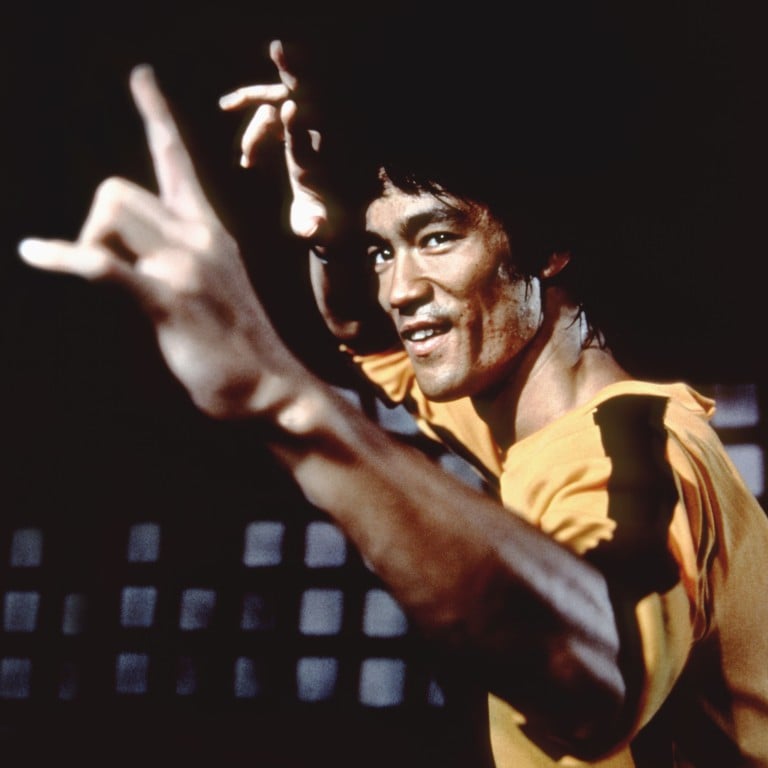‘Be water’: What was Bruce Lee’s combat philosophy, and why does it appeal to the Hong Kong protesters?

Lee developed an entire style and philosophy of martial arts all his own, much of it recorded in his book Tao of Jeet Kune Do – with adaptability being one of his tenets and the basis for his famous saying, ‘be water’
Bruce Lee always considered himself a martial artist first and an actor second. However, as a child actor who had performed in 20 films by the time he was 18, most people only know Lee through iconic movies like Enter the Dragon and Fists of Fury. Unknown to many, Lee, who began practising martial arts at 13, developed an entire style and philosophy of martial arts all his own, much of it recorded in his book Tao of Jeet Kune Do.
Meaning “the way of the intercepting fist”, jeet kune do embodied Bruce Lee’s philosophy and was an original creation. Although he had been brought up studying wing chun under the strict tutelage of Master Ip Man – famously portrayed by Donnie Yen in the recent series of Ip Man movies – Lee’s own ideas regarding martial arts favoured no particular style. Instead, paradoxically, formlessness was key, so that jeet kune do could be adapted to any other style of combat. “As a result,” Lee wrote, “jeet kune do utilises all ways and is bound by none and, likewise, uses any techniques or means which serve its end.”
Adaptability was one of Lee’s key tenets and the basis for his famous saying, “be water”. As he pointed out, water could trickle like a gentle stream or crash with the force of a tsunami. Among the first lessons all students of jeet kune do learn is the one that imparts the knowledge that “pliability is life, rigidity is death”. Lee penned many of his thoughts regarding martial arts during a time when he was practically bed ridden, a condition which may well have influenced his thinking regarding one’s need to be flexible, both physically and spiritually.
Lee was famously direct. In Enter the Dragon he asks, for the audience’s benefit, “Why doesn’t somebody pull out a .45 [calibre gun] and, bang, settle it?” rather than rely on kung fu. Unsurprisingly, this attitude permeates many of his instructions for students. “Jeet kune do avoids the superficial, penetrates the complex, goes to the heart of the problem and pinpoints the key factors,” he wrote. “Jeet kune do does not beat around the bush. It does not take the winding detours. It follows a straight line to the objective. Simplicity is the shortest distance between two points.”
Empty your cup so that it may be filled; become devoid to gain totality
Despite the long traditions of many kinds of Chinese martial arts, Lee was against blindly following any one particular set of instructions. He decried the fact that styles tended to become moribund institutions with a claim “to possess truth to the exclusion of all other styles”. He considered the martial arts taught by other schools to be a “fancy mess” of superfluous movements and straitjacketing techniques that weighed down practitioners.
This keeps them from realising the true essence of combat, something simple and direct, he believed. “Instead of going immediately to the heart of things, flowery forms and artificial techniques are ritualistically practised to simulate actual combat. Thus, instead of ‘being’ in combat these practitioners are ‘doing’ something ‘about’ combat.” A real fight, Lee insisted, would never be scripted or subjected to rules. It would be very much “alive”.
Lee believed the “accumulation of forms” was an “anchor that holds and ties down” a martial artist. If a fighter was not careful, it would drown him. Lee’s solution to this problem was to suggest that students of jeet kune do attain a Zen-like state of “non-attachment”. “Empty your cup so that it may be filled; become devoid to gain totality,” he preached. “If you want to understand the truth in martial arts, to see any opponent clearly, you must throw away the notion of styles or schools, prejudices, likes and dislikes, and so forth. Then, your mind will cease all conflict and come to rest. In this silence, you will see totally and freshly.”
Evidence of the enduring popularity of Bruce Lee’s philosophy is all around. Hong Kong protesters advised one another to “be water” and that same phrase was used for the title of a new documentary about Lee by American sports network ESPN. Clearly, his legacy lives on.
Want more stories like this? Sign up here. Follow STYLE on Facebook, Instagram, YouTube and Twitter .